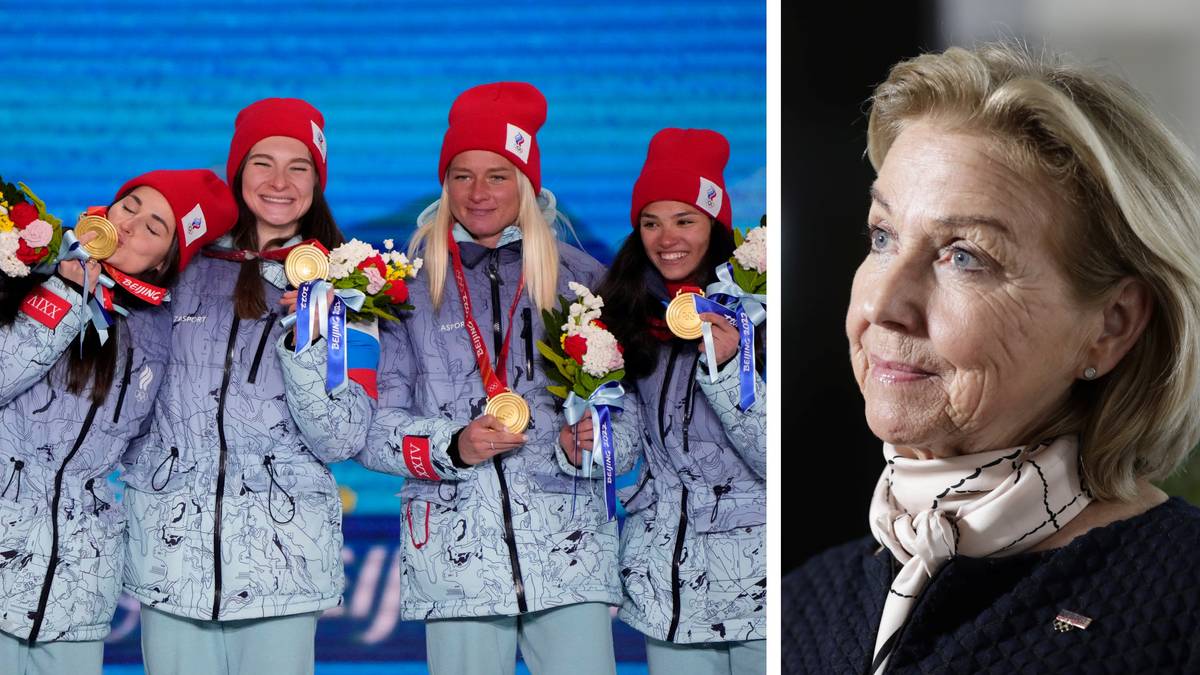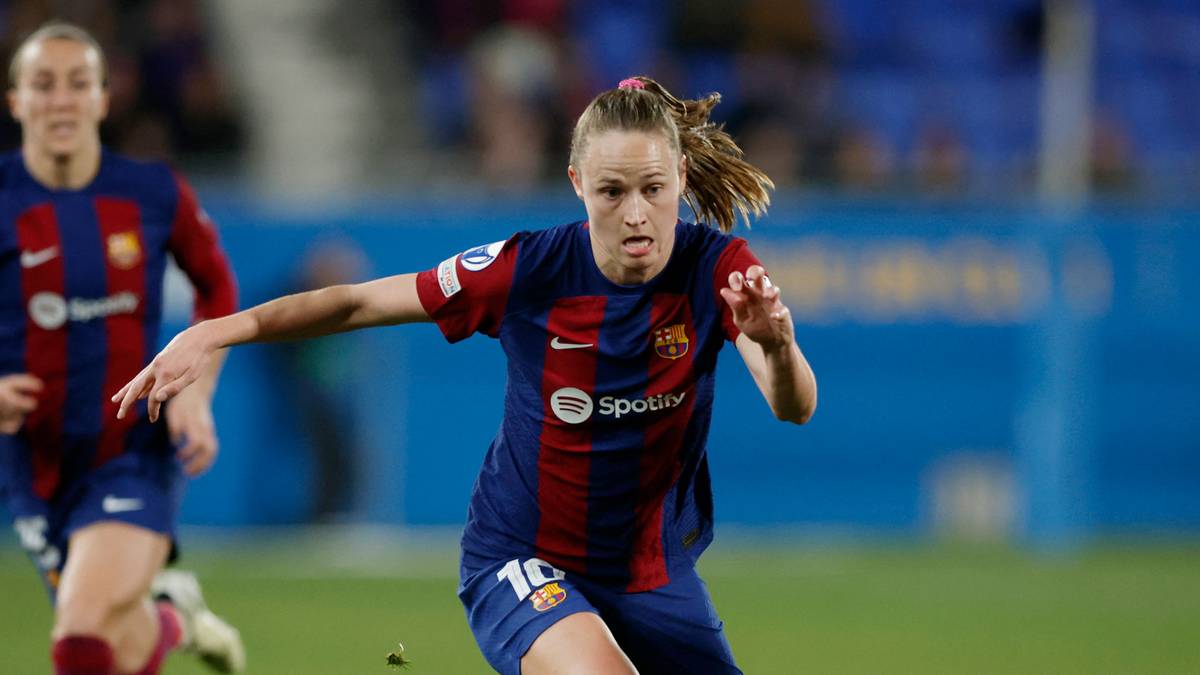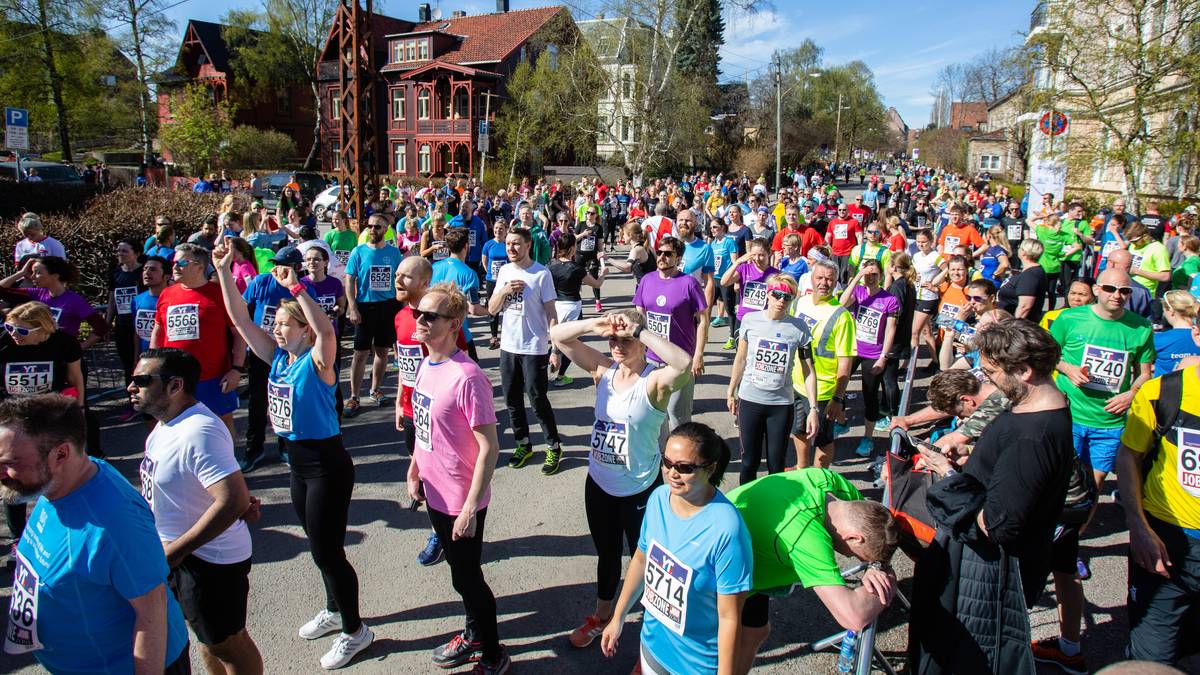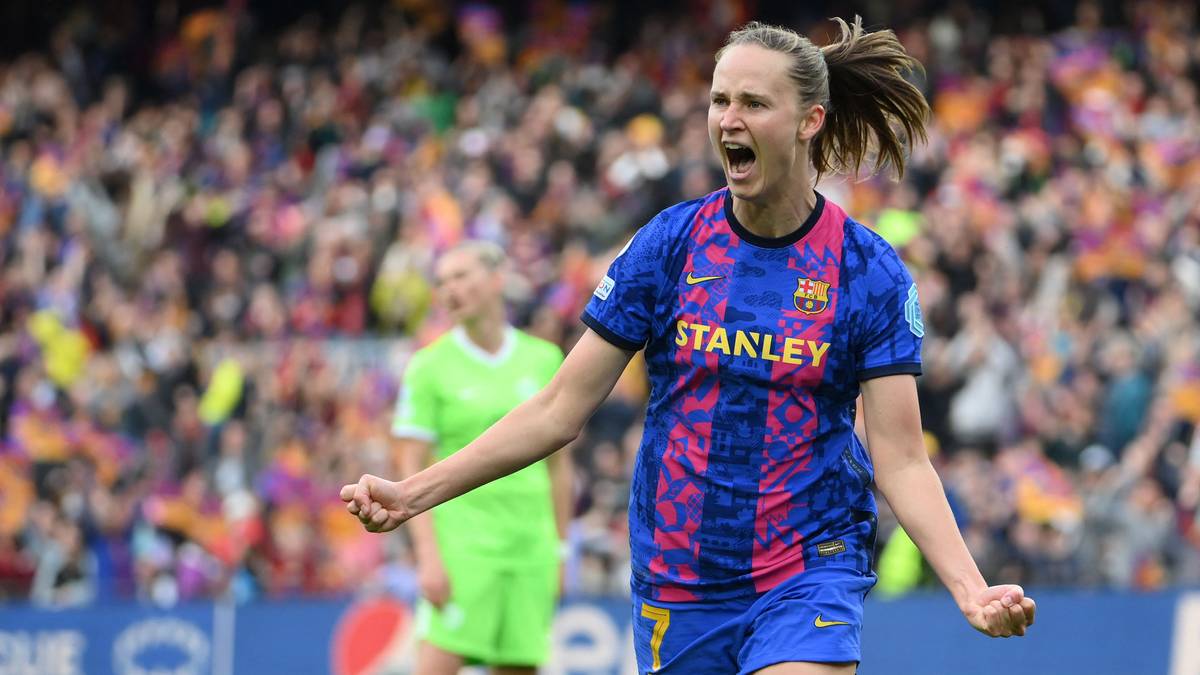– Even though it leaves a bad taste in the mouth, it is very important for the Olympic movement, Susanne Lyons told Wall Street Journal.
He is chairman of the US Olympic Committee, who was present at the Olympic Summit at the International Olympic Committee (IOC) venue in Switzerland on Friday.
There are also Russian and Chinese committees, as well as the International Swimming Federation and the International Gymnastics Federation.
At this meeting, it was agreed to seek Russia’s participation in the Olympics in Paris in 2024, but with a ban on Russian colors and flags, writes The Wall Street Journal.
THUMBS UP: Susanne Lyons, chair of the US Olympic Committee, is open to Russia’s participation in the 2024 Paris Olympics.
Photo: Mark Schiefelbein/AP
Problem solved?
Athletes from Russia and Belarus have been banned by the IOC since February, but IOC President Thomas Bach stepped out in September and opened the door for athletes who do not support the war to participate in the 2024 Paris Olympics.
Russian cross-country runner Veronika Stepanova, known for expressing herself politically through her channels on social media, has embraced the US’s new position.
“As far as I understand, issues are resolved at all levels: Russia joins Olympic Council of Asia, IOC allows Russian team to 2024/26 Olympics, organizers support, even Americans seem to have nothing against it,” he wrote. Instagram.
Stepanova previously railed against the IOC’s suggestion that Russian athletes should distance themselves from the regime to compete in the Olympics.

PUTIN-FRIEND: Veronika Stepanova smiled with the Russian president earlier this year.
Photo: Vladimir Astapkovich / AP
Prohibition of Russian colors and flag
Russian athletes were barred from competing with the Russian flag at the previous two Olympics in Tokyo and Beijing. The reason is a doping penalty from WADA in 2019.
Therefore, Russian athletes competed under a neutral flag and were given the name ROC (Russian Olympic Committee). By contrast, the Russian colors weren’t banned, and the Olympic collection for Russia made headlines ahead of the Olympics in Tokyo.

CAPTAIN BOLSHUNOV: Cross-country runner Aleksandr Bolshunov was promoted to captain of Vladimir Putin’s squad during the Beijing Olympics.
Photo: Jae C. Hong/AP
– We are categorically against the country’s colors returning to competition, given that the Russian government is under heavy sanctions, said Lyons.
He also said that the need for such action is not the same:
– The catalyst for this is still there, which is obviously the invasion of Ukraine, but the special security of the athletes is the same as before.

OLYMPIC WINNER: and Andrei Rublev represented the Russian Olympic Committee when they claimed Olympic gold in Tokyo 2021. Unlike other athletes, Russian tennis players were allowed to play in major tournaments this year.
Photo credit: Seth Wenig/AP
– Not acceptable
NRK sports commentator Jan Petter Saltvedt said Russia’s participation had never been closer.
– Now there are no more obstacles. When big countries say yes, small countries can only protest as much as they want, Saltvedt said and continued:
– This is the complete opposite of what the Norwegian Confederation of Sport has established as its position. I hope they maintain the same position, namely banning Russian and Belarusian participants.
And they did:
– It is unacceptable to open up participation in Russian and Belarusian sport internationally, says Norwegian sports president, Berit Kjøll.

UNACCEPTABLE: The president of sport believes that it is unacceptable to allow participation in Russian and Belarusian sports.
Photo: Håkon Mosvold
The sports council made a decision on February 26 this year calling for the banning of Russian and Belarusian athletes, sports leaders and trade union representatives from international sports. The decision was followed up at a joint meeting of Nordic sports leaders involving all Olympic and Paralympic committees and sports federations across the Nordic region.
The sports council backed the previous decision.
“The war against Ukraine is a clear violation of international law and creates a dangerous international security situation, with serious consequences for sport as well. Top sport is important to those in power in Russia and Belarus,” said a statement from a meeting of the leaders of the Norwegian Sports Confederation on Nov. 19.
Who will decide where the border is?
Kristin Kloster Aasen, IOC Norway representative, was not present at the Olympic Summit meeting itself, but at another meeting earlier this month where the same issue was discussed.
– The main principle is that sport is free and autonomous, and the authorities and the state should not decide who can participate and who cannot. It is also important to clarify that the sanctions imposed on the Russian and Belarusian authorities are permanent, said Aasen and continued:
– For the Olympic movement, it is difficult to envision a lasting solution in which athletes from two countries are kept away from the sport.

IOC REPRESENTATIVE: Kristin Kloster Aasen believes that sport is an arena of dialogue, peace and reconciliation.
Photo: Terje P
He showed that it was what was discussed at the Olympic Summit was not a ready-made proposal, but an approachwhich must be anchored further by several bodies.
He also stressed that condemnation of Russia’s invasion of Ukraine was still unanimous.
– It’s been a long time coming recommend for banned Russian and Belarusian athletes as well. The easiest maybe now have kept saying no, but it sets a precedent for the future. Who will decide where the border goes?, asked the IOC representative.
– Not always easy to get players from countries in conflict to compete with each other, but history shows that trying to do so fulfills our ambition to participate globally. And in that sense it creates an arena for dialogue, peace and reconciliation, said Aasen.
The IOC representative pointed out that the possibility of participation requires that both the Olympic Charter and sanctions remain respected.
Saltvedt did not believe this explanation.
– The only thing the IOC has to think about is the Ukrainian athletes who did not have the opportunity to participate because their country was invaded by Russia. I don’t see any developments in the war indicating that Russian and Belarusian athletes will be allowed to return to competition.

“Infuriatingly humble coffee guru. Travel practitioner. Freelance zombie fanatic. Certified problem solver. Food scholar. Student.”





